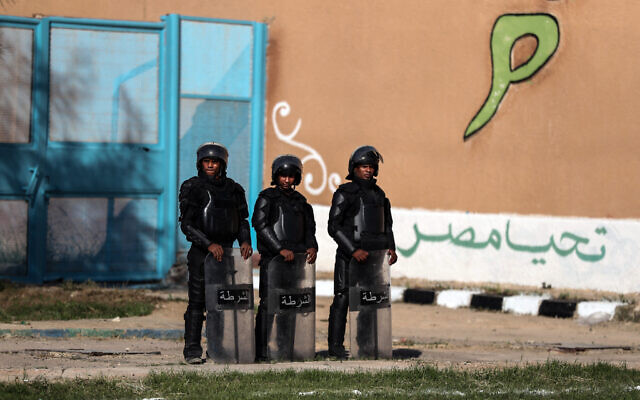In the months after Israel's conquest of the West Bank in 1967, Tzvi Raski, the Israeli military governor of Jenin, realized that the war between Israel and Jordan had disrupted the grain harvest for local Palestinians.
Raski ordered five modern combines to help farmers collect their crops and put his soldiers to work. One of them recalled: "I was among those who conquered the place. [...] A month before I was risking my life, and now here I was helping them harvest their grain."
"We are incapable of being conquerors," the man commented.
The anecdote is highlighted in a new book by prominent Islam historian Daniel Pipes, titled "Israel Victory: How Zionists Win Acceptance and Palestinians Get Liberated," released in June.
Pipes's use of this story aims to illustrate how generations of Israeli political and military leaders have pursued a policy of conciliation and placation toward Palestinians by providing them with material prosperity and engaging in negotiations and concessions instead of pursuing victory.
That peacenik approach is in stark contrast to Middle Eastern cultural codes of conflict, Pipes posits, and has made the Jewish state appear feeble in the eyes of its foes.
The scholar instead calls on Israeli leaders steering the war against Hamas to follow the traditional path to a conflict's end: victory of one side and capitulation of the enemy. They ought to abandon any attempt at winning Palestinian acceptance, Pipes claims, since their past endeavors have invariably crashed against the wall of Palestinian rejectionism of Israel as a Jewish state.
Moshe Dayan at the Temple Mount, June 7, 1967. (Ilan Bruner / GPO)
Historical evolution of modern conflicts
Regarded as one of the world's foremost experts on the Muslim world and radical Islam, Pipes has promoted his vision of "Israel victory" since the late 1990s.
In 2018, the Philadelphia-based Middle East Forum, the think tank Pipes presides over, launched a media campaign called "Israel Victory Project" aimed at resolving the century-old conflict by convincing Palestinians to give up their war against Israel. His latest book expands on the idea.
"I'm a historian and I am aware of how wars end. They generally end with one side giving up. So long as neither side gives up, then the war goes on," Pipes explained in a phone interview with The Times of Israel.
The scholar, now 74, has previously taught at Harvard University and the University of Chicago. He served in different roles under five US administrations between 1982 and 2005.
Pipes's roadmap to terminate the Israeli-Palestinian conflict is based on his observation of the historical evolution of modern conflicts.
"Look at the American Civil War, World War II, or the Vietnam War. These ended when one side gave up and it was over and everybody moved on," he said. "I believe that the key is one side accepting that it has lost and working with that and making the necessary changes.
"Applied to Israel and the Palestinians, this means convincing the Palestinians that they have lost. They do not have a hope of destroying Israel. They need to accept Israel, and by the way, that would be good for them," he said.
Palestinians protest against Israeli settlements at an army checkpoint near the West Bank village of Nabi Saleh on September 9, 2022. (Flash90)
Dueling parallel visions
The dynamic of incompatible visions between Israelis and Palestinians — between conciliation and rejectionism — dates back to the early days of Zionism, Pipes maintained, and is deeply entrenched on both sides.
"When the very first dozen or so young Zionist men landed in Palestine in 1882, they didn't know Arabic. They weren't farmers or soldiers. They were very few in number. They were idealists," he said.
"The local population, which we now call Palestinians, didn't want them there and told them to get out. And [the Zionists] responded by saying no, we are modern Westerners, we can bring you clean water and electricity. But Palestinians engaged in rejectionism, and said, 'No, we want to kill you, we're going to drive you away.'"
The conflict will persist as long as the Israelis fail to realize their misinterpretation of Palestinian aspirations over the past 140 years, Pipes said. "Instead of being conciliatory, they should say, 'We are in charge and you will bend to our will.'"
By his own admission, Pipes's approach is not new. It was championed by Revisionist leader Ze'ev Jabotinsky, who opposed the "peace mongers" of his time and advocated an "iron wall" to defend Zionism against local Arabs.
Ze'ev Jabotinsky (seated, center, pictured here with members of his right-wing Revisionist Zionist movement Betar), the forebear of today's hardline Zionism. (Wikimedia commons)
The dovish camp has long since ceased being the powerful force it was in Israeli politics during the Oslo peace process of the mid-90s. Today, it is a mere shadow of its former self, while right-wing hardliners have surged to the mainstream.
Firebrand ministers use inflammatory rhetoric against Palestinians as they appear to compete for the title of most unyielding cabinet member in the most right-wing government in Israel's history, while the Knesset recently overwhelmingly approved (68-9) a bipartisan resolution opposing Palestinian statehood.
Today, only a small minority in the Knesset, composed of the center-left Yesh Atid party, the embattled Labor party and the Arab faction (Ra'am and Hadash-Ta'al), formally supports a two-state solution.
Finance Minister Bezalel Smotrich addresses the media following a meeting of his Religious Zionism faction in the Knesset, April 30, 2024. (Sam Sokol/Times of Israel)
Therefore, Pipes appears to be preaching to the choir in today's Israel. The scholar, however, is far from being ideologically aligned with the contemporary Israeli right and the global pro-Israel camp: In 2020, he came under fire from right-wing pundits for opposing the proposed annexation of the West Bank.
In response to those who have accused him of softening his positions with time, he told The Times of Israel that "Kahanist ideas" among sections of the Israeli right to expel Muslims would be "catastrophic" for Israel.
"It's rather that the pro-Israel world has become more hawkish," he added. "My views have not changed."
Protesters voice their anger with the police at an ultranationalist protest that was blocked outside the Old City of Jerusalem, December 7, 2023. (Chaim Goldberg/Flash90)
'You defeat them, and then you change them'
Pipes's arguments, while not new to Israeli audiences, may find resonance with Israel supporters abroad, exasperated with an intractable conflict and with the "liberal temper of the times, [which] demands that Western states use great caution in deploying superior power when fighting a non-Western insurgency," as he wrote in his latest work.
Pipes described his proposal as a "miniature version" of the approach adopted by the United States toward Germany and Japan after World War II, thoughts shared by Prime Minister Benjamin Netanyahu in his address to Congress on July 24.
"You defeat them, and then you change them. If it can be done with aspiring world conquerors, it can be done with this small, weak population [i.e., Palestinians]," Pipes told The Times of Israel.
International scrutiny should not be an impediment in targeting Palestinians with "messaging, not violence, to convince them — be it the security prisoners in jails, children in the schools, or the general public."
Illustrative: Israeli forces take a position in a street during a raid in the al-Faraa camp, near Tubas in the West Bank on June 10, 2024. (Jaafar Ashtiyeh/AFP)
Israel has successfully adopted this approach in the past with the Palestinian minority granted citizenship inside its borders, Pipes recalled. From 1948, when the state was founded, to 1966, Arab citizens were subjected to military rule: Their movement inside the country was severely limited, their political organizations were prohibited and their publications censored.
Those restrictions were only lifted when military and political leaders deemed the risk of insurrection to have subsided, Pipes said.
Military rule, while ensuring that Israel's Arab minority remained docile, was morally and legally problematic for the newly established state, as restrictions imposed on Israeli citizens put in question the democratic nature of the country. It was also the source of "significant resentment" among Arab Israelis, as the Akevot Institute for Israeli-Palestinian conflict research noted in a research project on that era.
A golden opportunity for change in Gaza
The ongoing war in Gaza, Pipes wrote, could provide Israel with a golden opportunity to transform the coastal enclave into a "decent" place, thanks in part to the fact that 17 years of Hamas's "torment" of the local population turned it against the terror group and consequently "eroded their anti-Israel vehemence."
Palestinian demonstrators chant slogans against Hamas in the Gaza Strip during a protest against the territory's chronic power outages and difficult living conditions along the streets of Khan Younis, Sunday, July 30, 2023. (AP Photo)
"Israel now controls nearly all of Gaza," Pipes explained over the phone. "It needs to take advantage of this to work with Gazans who are ready to cooperate to build an administration, a police force and everything else that goes with civilized life, education, hospitals."
A veteran analyst of Middle East politics, Pipes believes that a new regime in Gaza should follow the same path to stability as Israel's larger Arab neighbors Egypt and Jordan, "countries where one can lead a normal life so long as one stays out of trouble and never, ever criticizes the ruler."
"I would see [the new regime in Gaza] as a tough police state, not as a gentle inducement," he said.
Illustrative: A picture taken during a guided tour organized by the Egyptian State Information Service on November 20, 2019, shows policemen standing guard at Borg el-Arab prison near the Egyptian city of Alexandria. (Mohamed el-Shahed / AFP)
Israelis should have "learned the lesson of 1993," the year the Oslo accords were signed. In that framework, Israel made concessions, including agreeing to the establishment of the Palestinian Authority, intended as a precursor to the creation of a Palestinian state in the West Bank and Gaza. The peace process, however, was derailed and Israel soon found itself confronted with a massive bloody uprising, the Second Intifada, and hundreds of civilian casualties in terror attacks.
"It's time to approach this [Israeli-Palestinian conflict] in a different way, and to attempt to convince Gazans and West Bankers that is over. They've lost and it's time to move on, in the time-honored way that wars end," Pipes said. "They don't end with peace conferences while the war is still taking place."







